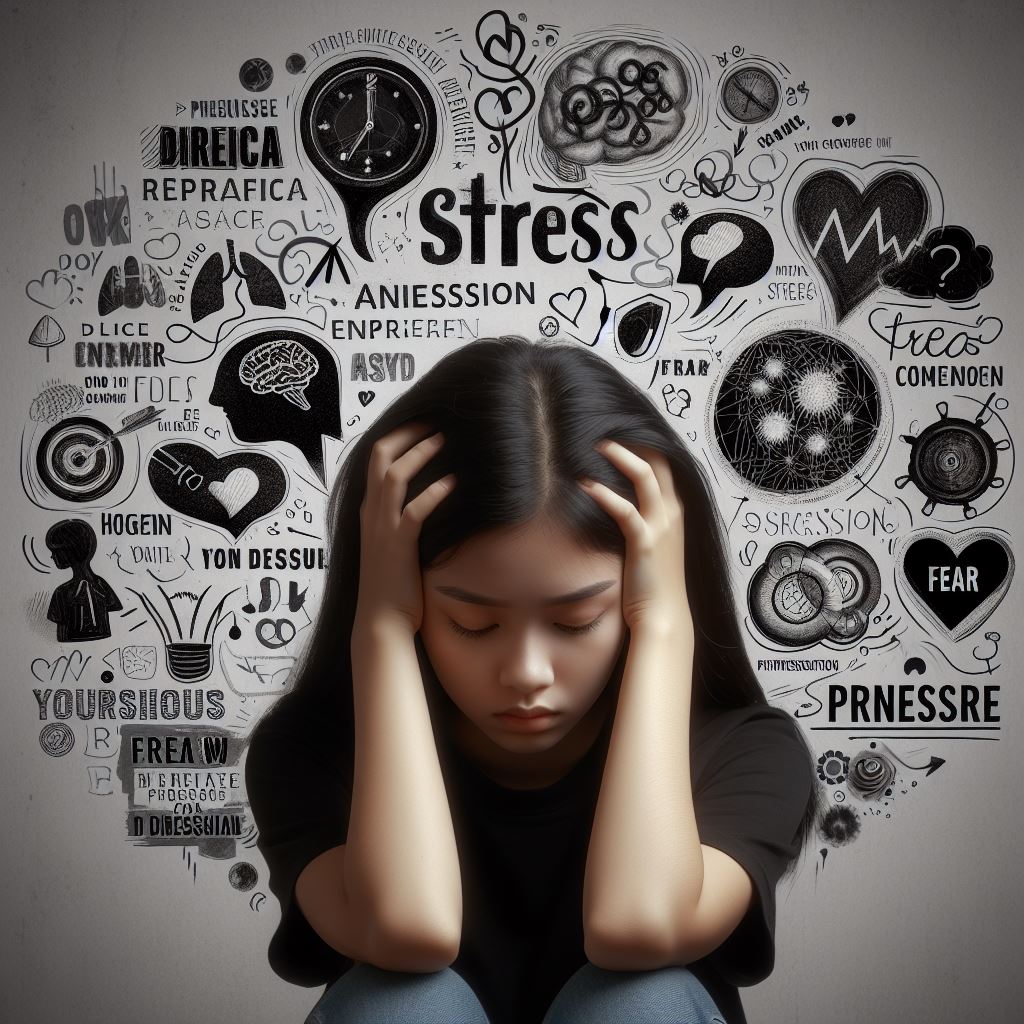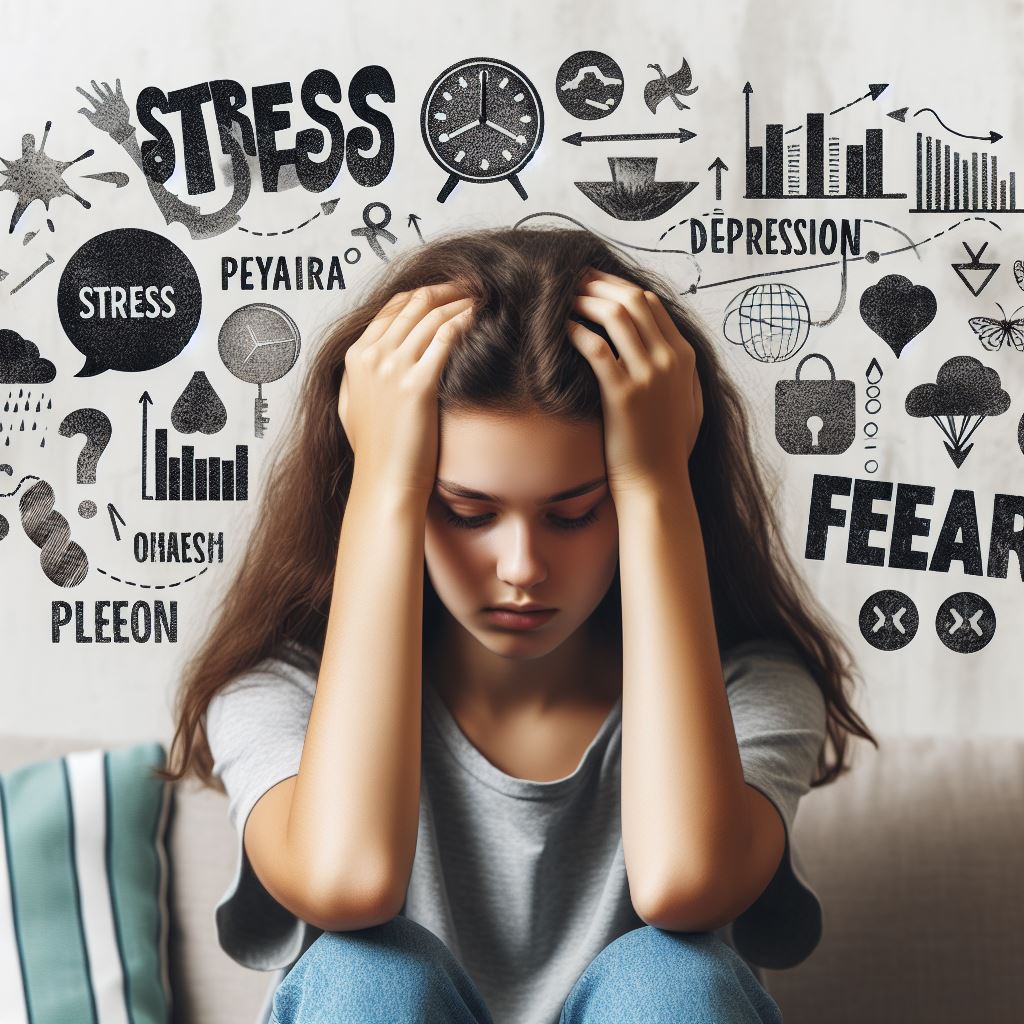Mental Health Issues in Teens: 8 Mental Disorders in Teens
Mental health problems are common in teens. It is best to notice a problem early and get the right treatment to support your child, just as you would for a broken bone. The tricky thing is that teens are growing and changing all of the time. It can be hard to tell the difference between mood and behavior changes that commonly happen as children age and ones that are a sign of anxiety, depression and other mental health concerns.

In this article, we will discuss mental health issues in teens and how mental health affects teens.
According to the National Institute of Mental Health, approximately 49.5% of all teens between the ages of 13 and 18 had any mental disorder. This includes behavior, mood, and anxiety disorders.
Outlines:
● Causes of mental health issues in teens
● Signs of mental health problems
● Common mental health disorders among teens
● Other teenage mental health conditions
● How mental health issues affect teens
● Ways to help your teen
● Summary
Causes of mental health issues in teens
Following are risk factors to develop mental health issues:
● Increased fear, stress, and anxiety
● Parental depression
● Child abuse by parents
● Family conflict
● Loss of school, sport, community routine
● Loss of encouraging relationships with family members, friends, and mentors
● Childhood trauma, abuse, or neglect
● Loneliness or social isolation
● Poverty
● Lose of a parent or close one
● Severe or extreme long-term stress
● Facing a long-term physical health condition such as a head injury or neurological condition which includes epilepsy. This may impact on your mood and behavior
● Unemployment and losing job
● Homelessness or poor housing
● Misuse of drug and alcohol
● Domestic violence
Signs of mental health problems
● Mental health problems affect thinking and behavior.
Parents, teachers, coaches can help identify early signs of mental health issues. Notice if a child:
● Is feeling very sad for 2 or more weeks
● Has mood swings
● Shows changes in behavior
● Has problems in friendships and other relationships
● Has a sudden overwhelming fear that does not match the situation
● Seems irritable
● Displays anger
● Has often trouble sleeping
● Changing in eating habits
● Weight lose
Common mental health disorders among teens
Major Depression in Teens
One of the most common mental disorders among teens in the United States is depression. According to a study, major depression have risen by 33 percent since 2013. Furthermore, the rates of major depression in adolescents have increased by 65% for girls and 47% for boys.
Symptoms include:
● Low self-esteem
● loss of interest in normally enjoyable activities
● Problems with sleep, energy and concentration.
Teens with major depression find it difficult to do normal daily activities, such as working, studying, sleeping, and eating. This is also known as major depressive disorder or clinical depression. It is one of the types of depression that has the most severe symptoms. Therefore, it affects quality of life for teens.
Teen Anxiety
It is not always easy to tell when typical teen stress crosses over into anxiety in teenagers. However, teens with an anxiety disorder experience high levels of anxiety. Moreover, these emotions or feelings get worse over time, rather than improving.
Additionally, teens with anxiety disorders struggle with feelings of tension that can interfere with daily activities at work and at school. Furthermore, like other teen mental disorders, teen anxiety affects adolescents’ relationships with peers or family members.
Generalized Anxiety Disorder
(GAD) is the most common teen anxiety disorder. This type of anxiety in teenagers involves excessive anxiety over everyday events. Moreover, it lasts for a prolonged period of time.

Eating Disorders in Teens
Eating disorders among teens commonly include anorexia, bulimia, and binge-eating disorder. Anorexia has the highest death rate of any mental disorder, resulting from metabolic collapse, starvation, or suicide. Therefore, it is considered as one of the most dangerous mental disorders amongst teens. Hence, teens having eating disorders are often moody, anxious, and depressed. Teens with eating disorders are also at greater risk for self-harming behavior and substance abuse.
Substance Use Disorder
The list of teen mental disorders also includes substance use disorder. That’s because teens use high amounts of drugs and alcohol to self-medicate depression, anxiety, trauma, low self-esteem, and other underlying conditions.
Borderline Personality Disorder in Teens
Teens having borderline personality disorder lack a stable sense of self. Teens with borderline personality disorder don’t know how to control emotions. Thus, without a firm identity, people with borderline personality disorder have extreme emotional instability.
Teens with this disorder are unable to link or connect with others. Consequently, they become isolated. Lacking a clear sense of self, they feel anxious.
Teenage Schizophrenia
Schizophrenia is a chronic disease. According to the National Institute of Mental Health, symptoms of this disorder often start in people who are younger than 30. Teenagers suffering from schizophrenia have difficulty processing personal feelings and emotions and they often become completely detached from reality.
People with schizophrenia have differences in their brain structures, and processing abilities. Hence, people with schizophrenia have a difficult time understanding information or processing lessons. As a result, it is difficult for them to completely take control of their disease. Therefore, the goal of schizophrenia treatment is to help the person understand the disease and work hard to keep the disease under control.
Teen Trauma and PTSD
After tragic events, teens may experience lasting effects. This kind of trauma can lead to post-traumatic stress disorder (PTSD). Causes of PTSD include accidents, natural disasters, fires, crimes, childhood abuse, the loss of a parent or other family member, and other tragedies and childhood trauma. A single traumatic event is called “acute trauma.” An acute trauma can cause teen mental disorders such as traumatic stress and PTSD. Traumatic stress may last days, weeks, or months following the event.
Ongoing traumatic events, I.e, exposure to childhood abuse, domestic violence, or gang violence, are called “chronic trauma.” Both acute and chronic trauma cause PTSD in teens.
How do mental health issues affect teens?
Teens with psychological issues may struggle with grades and school, their health, and decision making. They also face difficulties in doing their daily life activities. They also find it challenging to communicate with other people around them, for example, coping with work or school.
Ways to help your teen
Parents can do a lot to help their children to cope with mental health disorders:
Know the warning signs
It can be difficult to tell whether or not your teen has a mental illness, but there are certain signs you can watch out for. Some signals include restrained eating (indicative of an eating disorder), oversleeping or exhaustion, extreme mood swings, and wearing long sleeves or pants or bandages (to cover up signs of self-harm).
Have a conversation about drug abuse
Many teens choose to experiment with drugs to escape the weight of a mental disorder. While your teen may never try harmful substances, don’t suppose that they won’t instead, have a discussion about the side effects of drugs . If you fear your teen is dependent on drugs, talking to them is more important.
Consult your primary care doctor
The doctor of your teen will be able to give you advice on how to identify the presence of a mental illness. If a doctor does not provide a diagnosis or referral to another professional, it can be beneficial to seek a second opinion.
Pay attention to your teen
Check in with your child or teen. Ask how they are feeling and how things are going in their life. Listen to their words, and pay attention to any changes in their behavior.
Listen to them carefully
Listen more than you talk, and hear what your child is saying. Be aware that your teen may not want to problem-solve, they may just want to be heard and accepted.
Encourage your child
Encourage your child to continue talking. Support them by saying things like: “Tell me more.” “I hear you.” “I understand you feel left out.” Encourage your child to label their emotions, and to accept all their emotions.
Built a strong relationship with them
Build a strong and very positive parent-child relationship. Respond to the emotional and physical needs of your child.
Establish family time
Establish a weekly family time to share an activity, like playing different games for cooking a meal together.
Teach them healthy habits
Establish daily routines that support healthy habits to help teens know what to expect and depend on. Include regular sleep and wake times, family meals, and clear responsibilities as part of your family’s way of life.
Summary
If someone is struggling with a mental disorder, whether that be depression, an eating disorder, or even prescription drug abuse – it is essential to find a professional who can help. Untreated mental health issues in teens can lead to an increased risk of suicide, substance addiction, violence, and worsened mental illness into adulthood. Due to this reason, early intervention is essential for teens’ long-term mental, emotional, and physical health.

